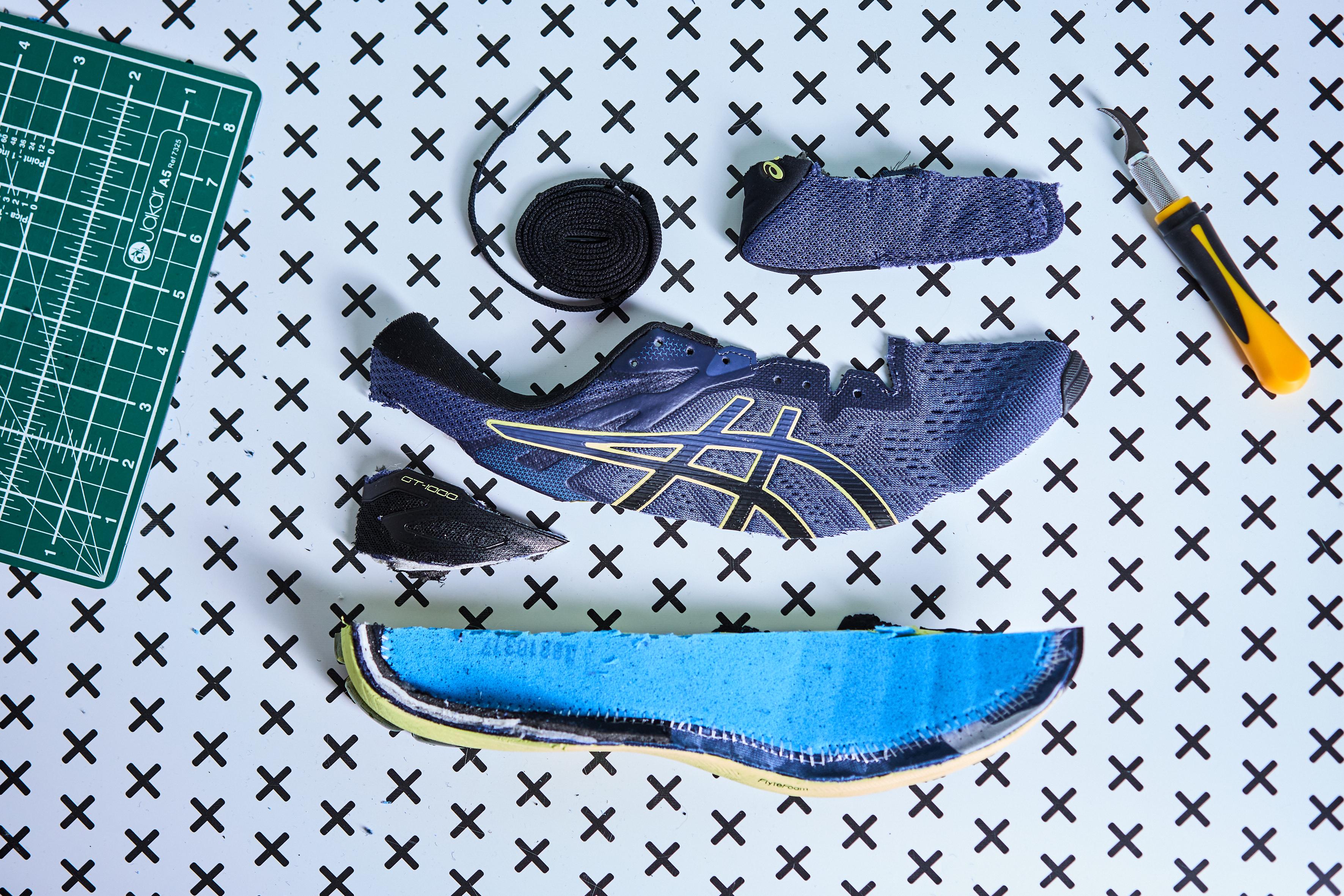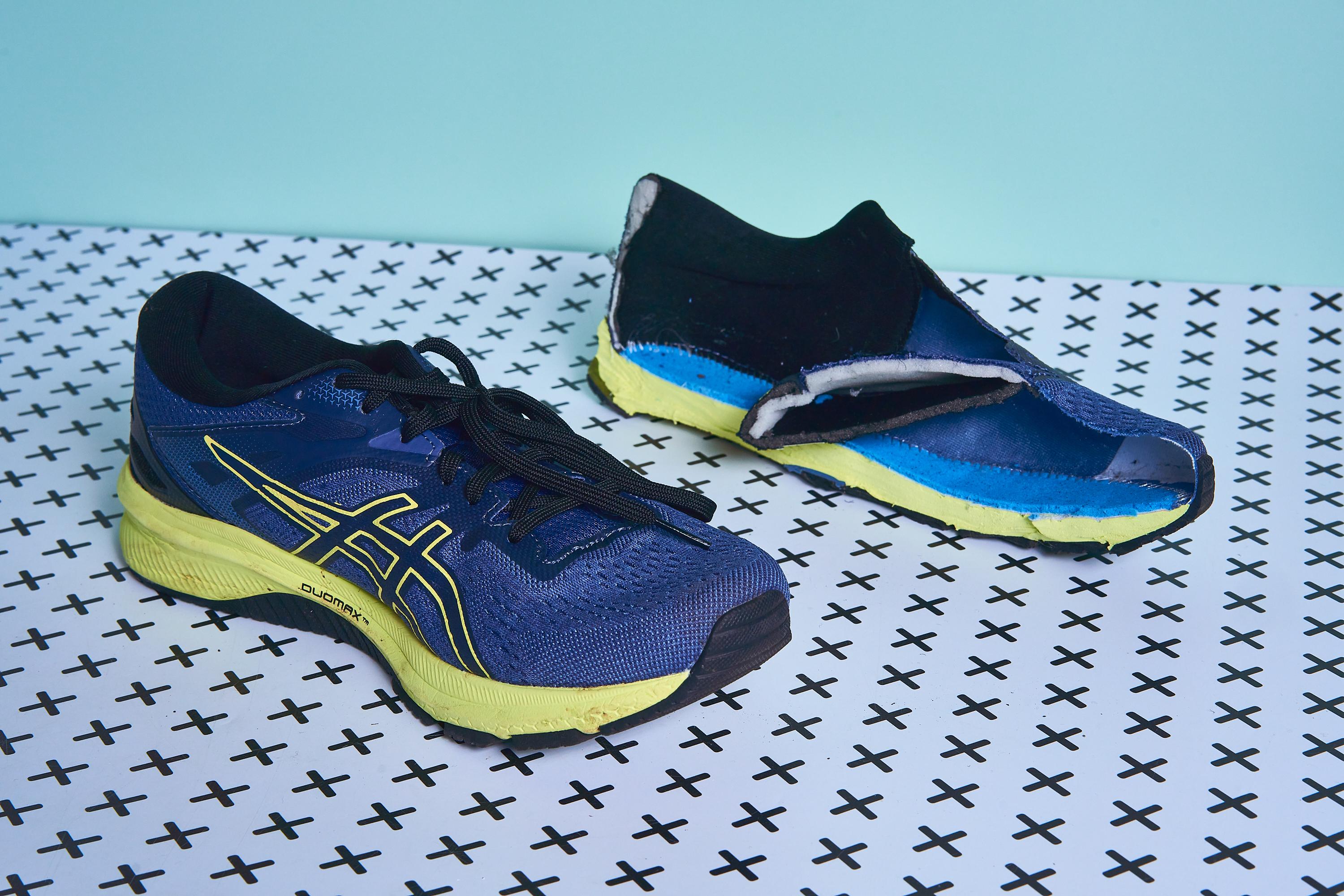Our verdict
Pros
- Fits true to size
- Great stability shoe
- Good value
- Good amount of cushioning
- No time to wear in
- Amazing grip
- Durable
Cons
- Could be too warm for some
- Not enough cushioning for long runs
Audience verdict
- Top 17% in ASICS Gel running shoes
Comparison
The most similar running shoes compared
+ + Add a shoe | |||||
|---|---|---|---|---|---|
| Audience score | 88 Great! | 78 Decent! | 87 Great! | 83 Good! | |
| Price | $100 | $110 | $120 | $170 | |
| Pace | Daily running | Daily running | Daily running | Daily running | |
| Shock absorption | - | Moderate | Moderate | Low | |
| Energy return | - | Low | High | Low | |
| Traction | - | High | - | Moderate | |
| Arch support | Stability | Stability | Stability | Stability | |
| Weight lab Weight brand | 9.8 oz / 277g 9.9 oz / 281g | 9.6 oz / 272g 9.3 oz / 265g | 10.3 oz / 293g 10.5 oz / 297g | 11.6 oz / 329g 11.3 oz / 320g | |
| Drop lab Drop brand | 7.8 mm 9.0 mm | 9.6 mm 8.0 mm | 9.8 mm 10.0 mm | 7.9 mm 10.0 mm | |
| Strike pattern | Mid/forefoot | HeelMid/forefoot | HeelMid/forefoot | Mid/forefoot | |
| Size | Slightly small | True to size | True to size | True to size | |
| Midsole softness | - | Soft | Firm | Balanced | |
| Difference in midsole softness in cold | - | Normal | Small | Normal | |
| Toebox durability | - | Decent | Decent | Good | |
| Heel padding durability | - | Good | Good | Good | |
| Outsole durability | - | Good | Bad | Good | |
| Breathability | - | Warm | Warm | Moderate | |
| Width / fit | Medium | Medium | Medium | Narrow | |
| Toebox width | - | Medium | Wide | Medium | |
| Stiffness | Stiff | Moderate | Stiff | Moderate | |
| Torsional rigidity | - | Stiff | Moderate | Stiff | |
| Heel counter stiffness | Moderate | Moderate | Moderate | Moderate | |
| Heel lab Heel brand | 31.0 mm | 35.4 mm 34.5 mm | 32.9 mm 31.0 mm | 33.2 mm 31.0 mm | |
| Forefoot lab Forefoot brand | 23.2 mm | 25.8 mm 26.5 mm | 23.1 mm 21.0 mm | 25.3 mm 21.0 mm | |
| Widths available | NormalX-Wide | NormalWideX-Wide | Normal | Normal | |
| Orthotic friendly | ✗ | ✓ | ✓ | ✓ | |
| Season | - | All seasons | All seasons | All seasons | |
| Removable insole | ✗ | ✓ | ✓ | ✓ | |
| Ranking | #290 Top 43% | #337 Bottom 12% | #170 Top 45% | #259 Bottom 32% | |
| Popularity | #607 Bottom 11% | #136 Top 36% | #354 Bottom 7% | #145 Top 38% |
Size and fit
Size
ASICS GT 1000 10 fits slightly small (11 votes).
ASICS GT 1000 10 Review and Lab Test
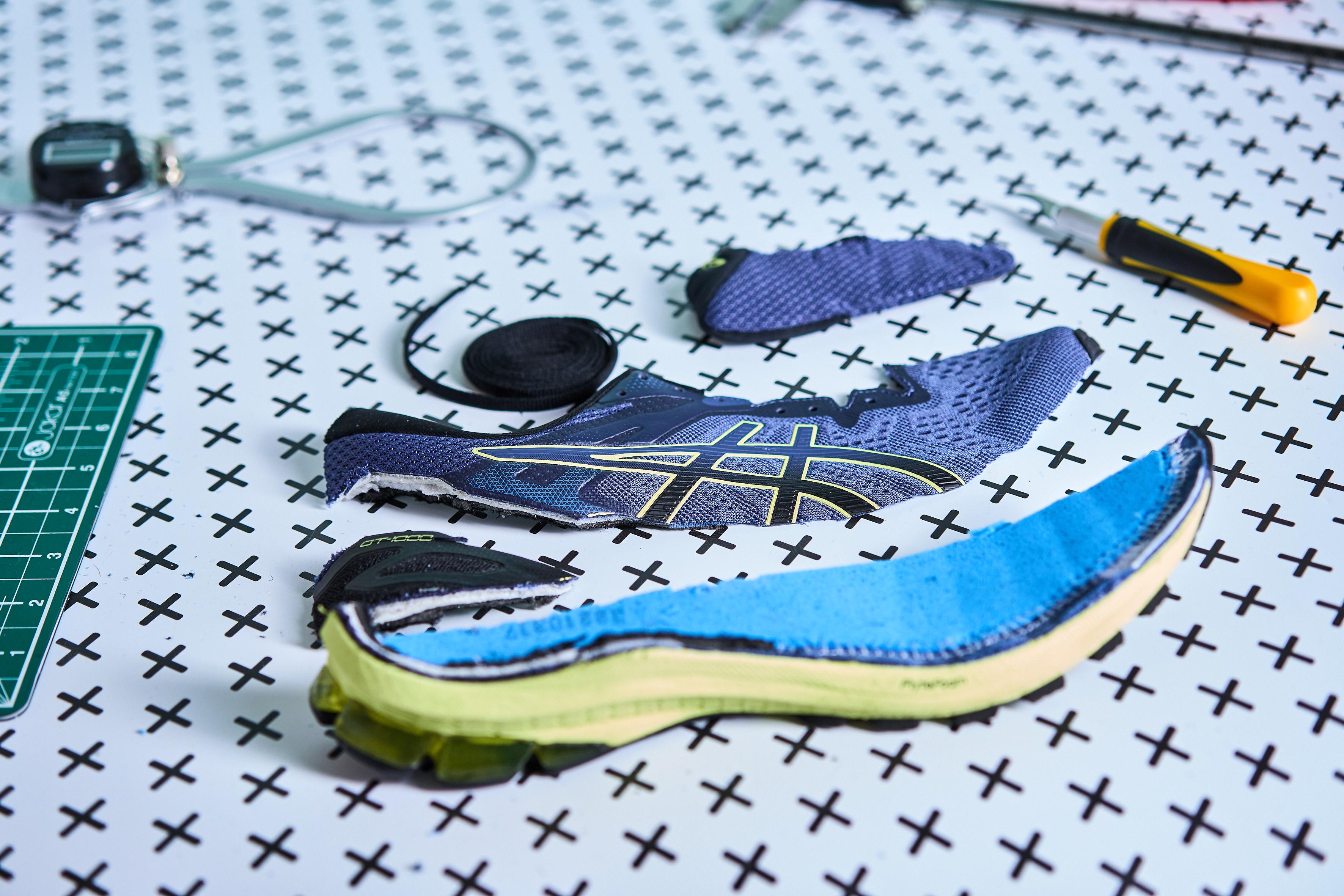
If I was pleasantly surprised by the value for money from ASICS’ last version of their budget-friendly stability shoe, I’m over the moon at their newest update. They’ve managed to bring the weight down, while keeping an excellent level of support and stability for over-pronators.
A stability shoe that refuses to break the bank
Sure, there are easy ways to spend money on running shoes. Even ASICS themselves offer up the like of the Gel Kayano Lite 2 for runners needing extra-stability for a hefty price tag.
A lot of running shoe brands offer guide rails, super tall, soft padding (looking at you Hoka) and a few extra bells and whistles.
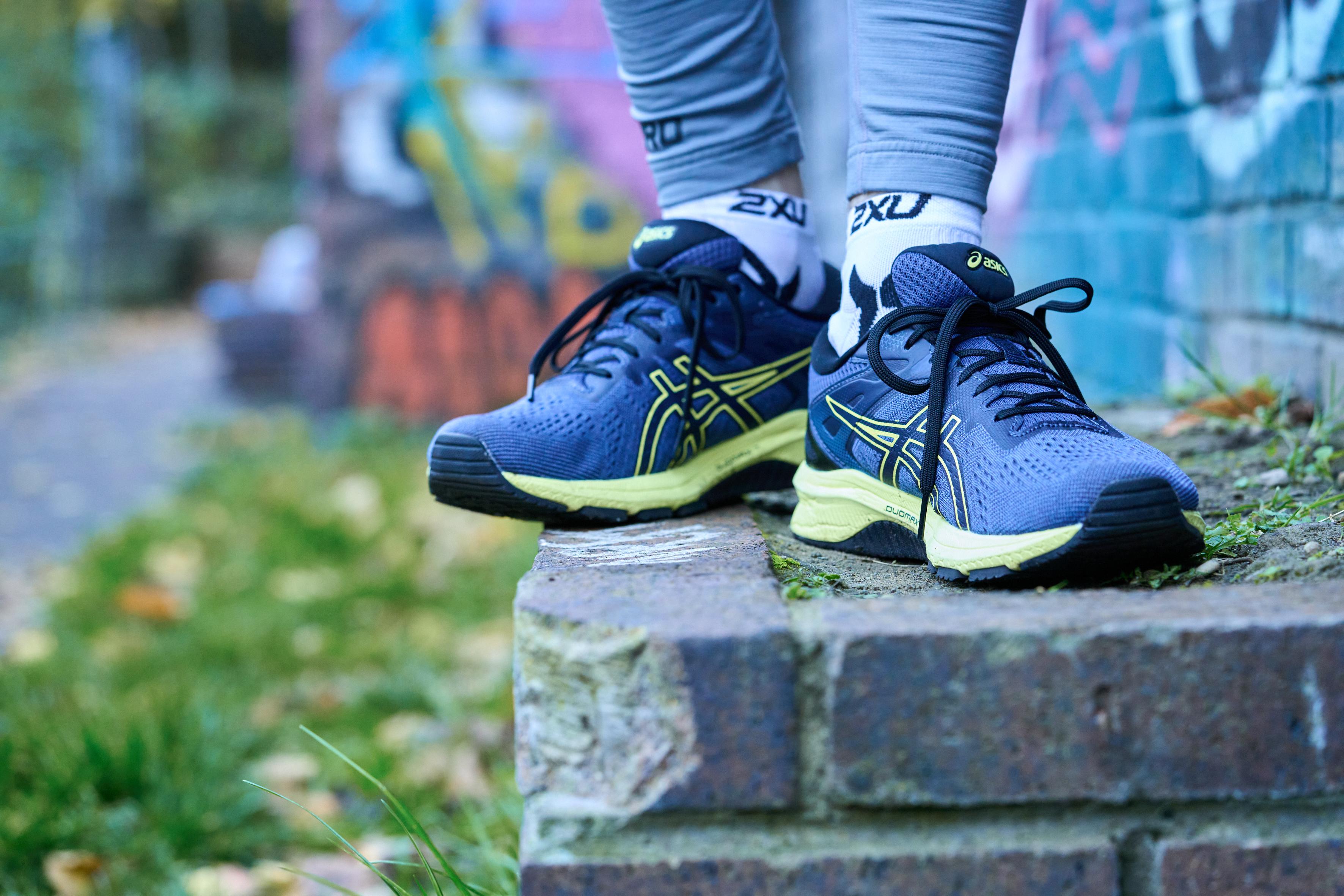
While there are some features that I’d love to see in the GT 1000 10, it is kept simple, clean, and cheap.
Who the ASICS GT 1000 10 is not for
I don’t recommend going for this shoe if:
- You don’t need a stability shoe, there are plenty of options for neutral runners on any budget. I suggest checking out the ASICS Gel Nimbus Lite 3 or the Brooks Launch 8
- You need a stability shoe for longer runs, sometimes a bit of extra cushioning can do wonders for the longer days, maybe the ASICS Gel Kayano 30.
Nice to look at
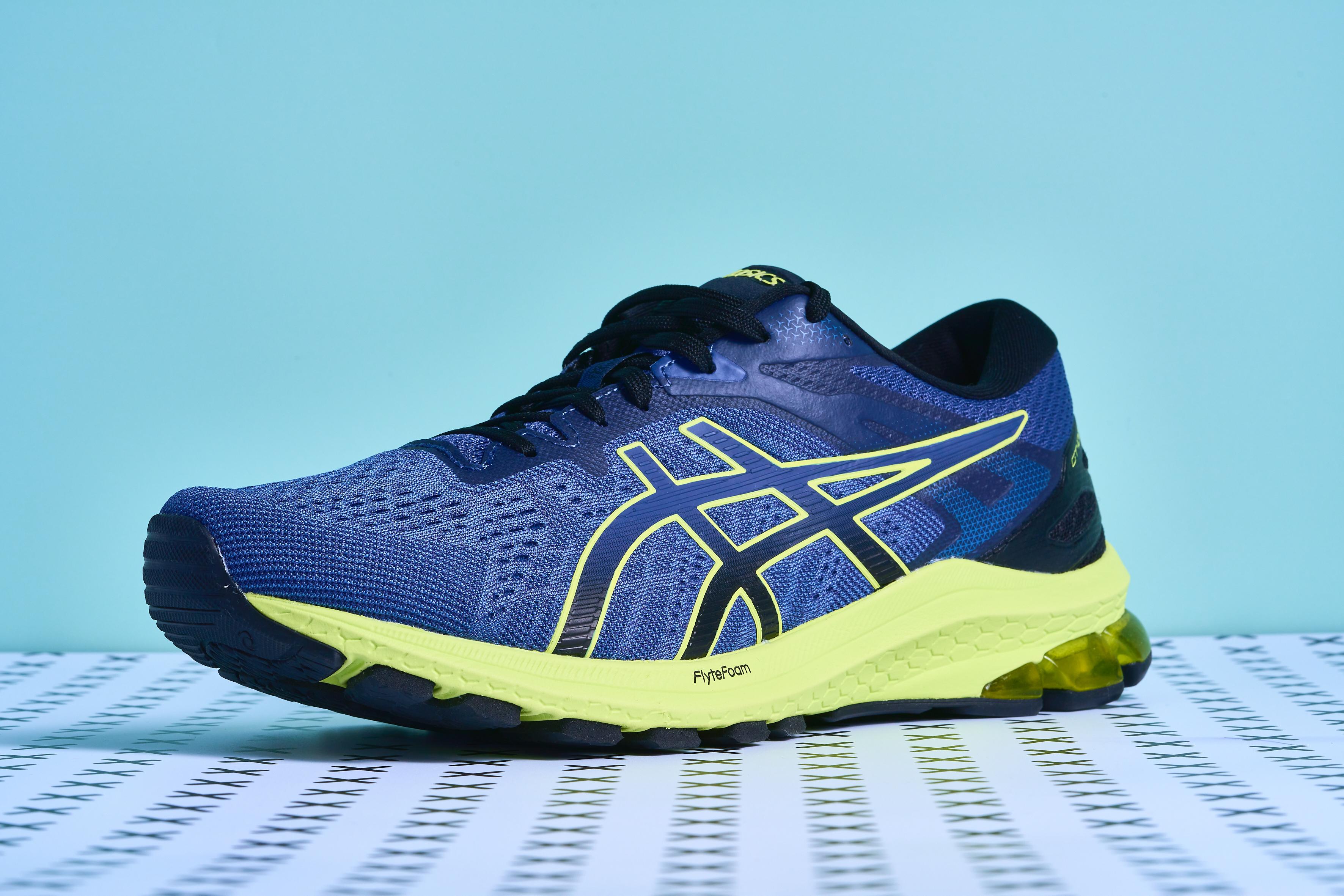
The ASICS GT 1000 9 might have been criticised for looking a bit too much like a running shoe. ASICS definitely keep a very traditional look when it comes to their road runners, which might suit some.
While the GT 1000 10 isn’t the spaceship-like Saucony Endorphin Pro +, the Storm Blue/Thunder Blue colorway that I picked up brought with it a more casual look to their previous models, with a pronounced, blunter silhouette.
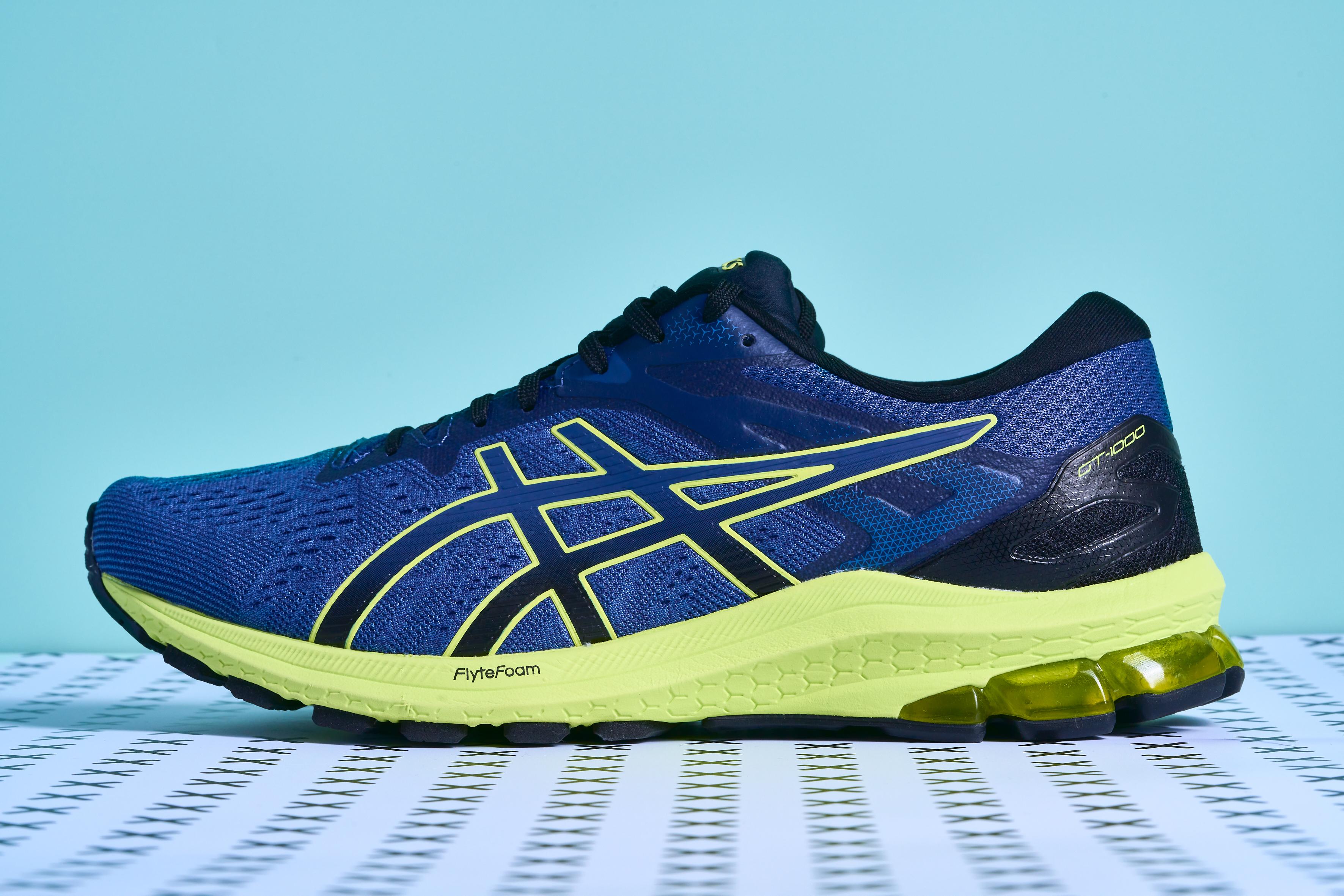
The upper mesh has also changed, while keeping plenty of holes for breathability, there’s now more structure elements of the knit throughout that help the upper shape to the foot.
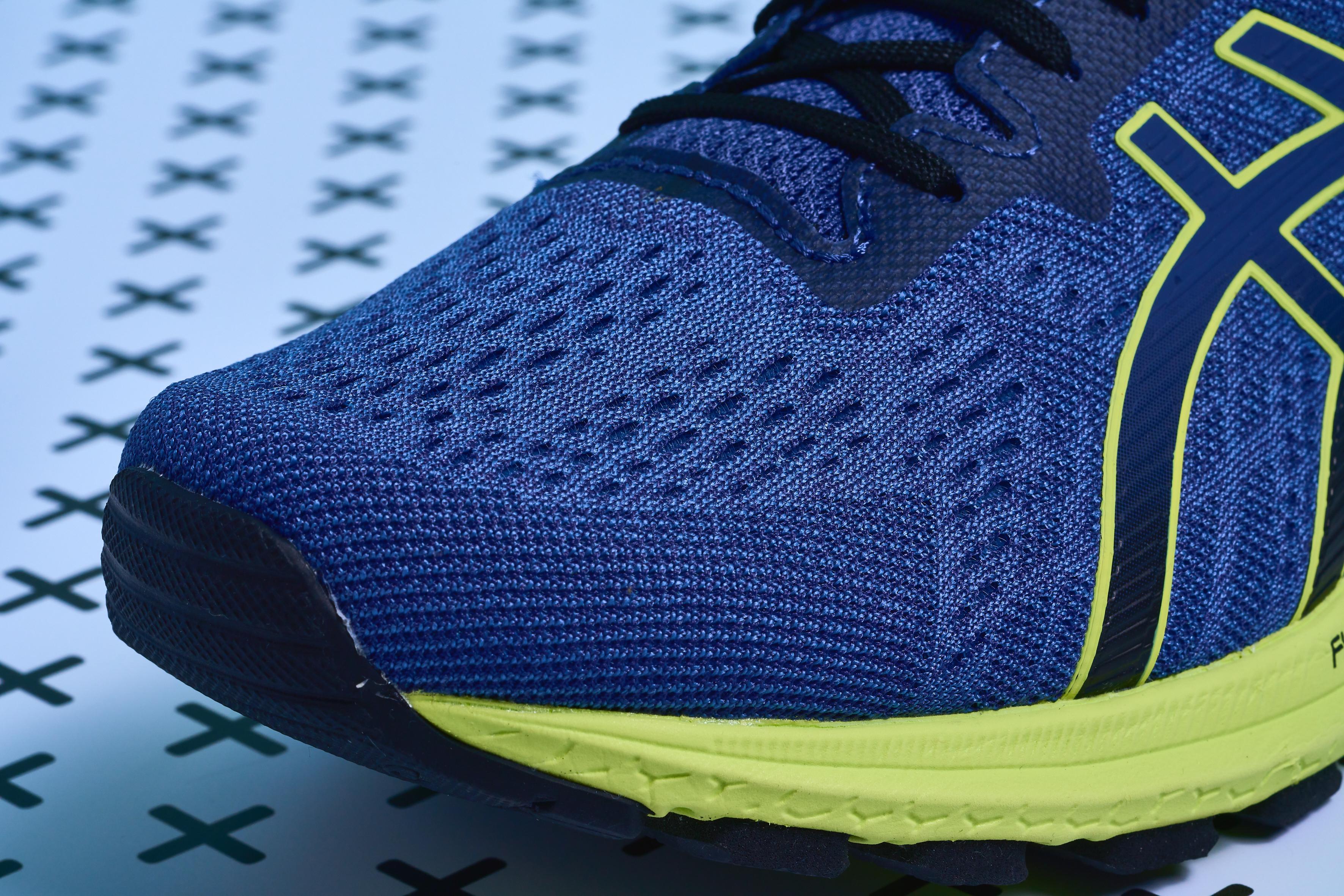
An improvement on the fit
With previous versions of the ASICS GT 1000 series I’ve felt issues with heel lock, while not too drastic, the shoe used to be noticeably loose at the back.
Still fitting true to size, the GT 1000 10 has fixed the heel by integrating the heel counter into the upper support system.
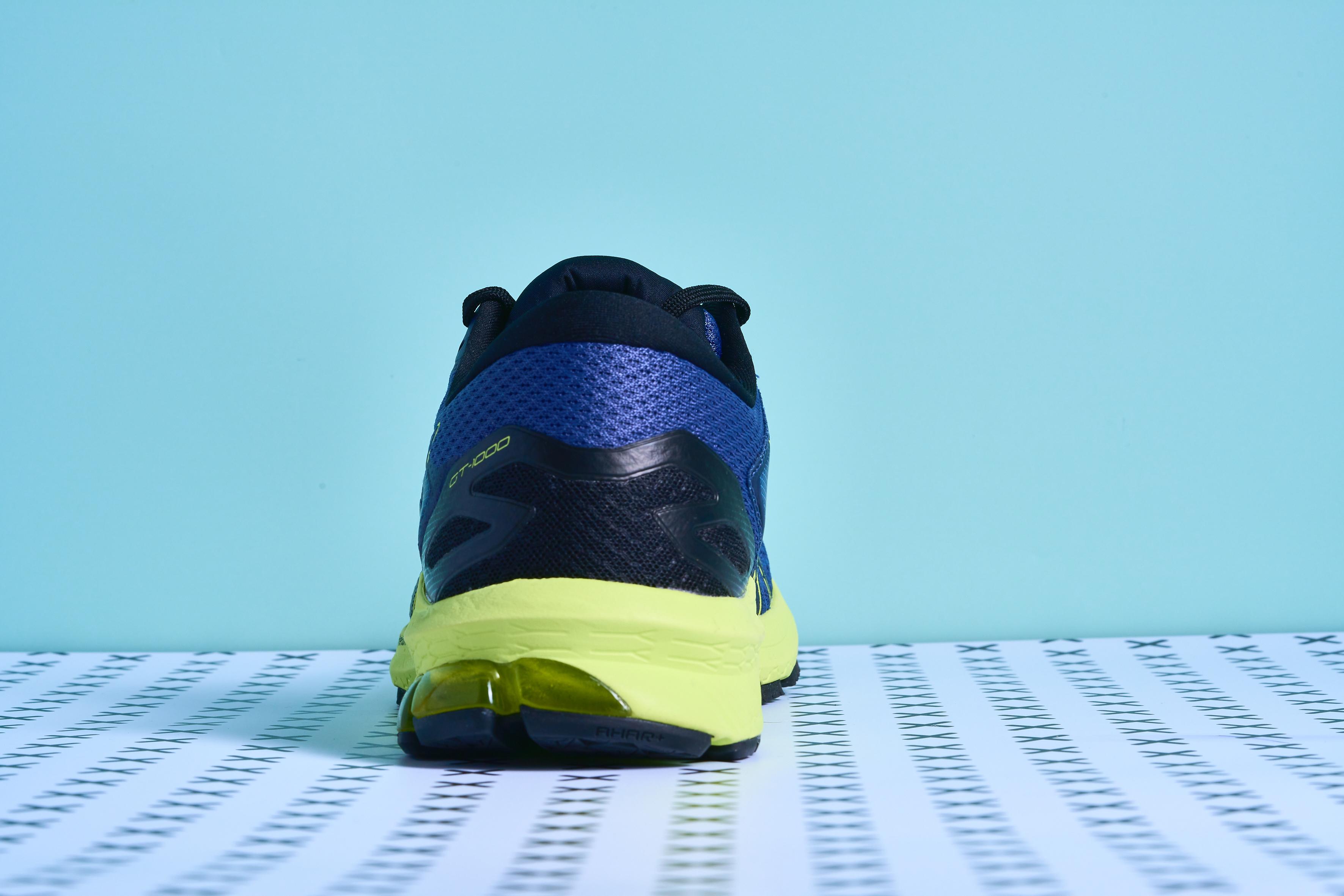
Now the strappier parts of the upper that lock in your forefoot connect to the heel counter, helping to strap the heel too.
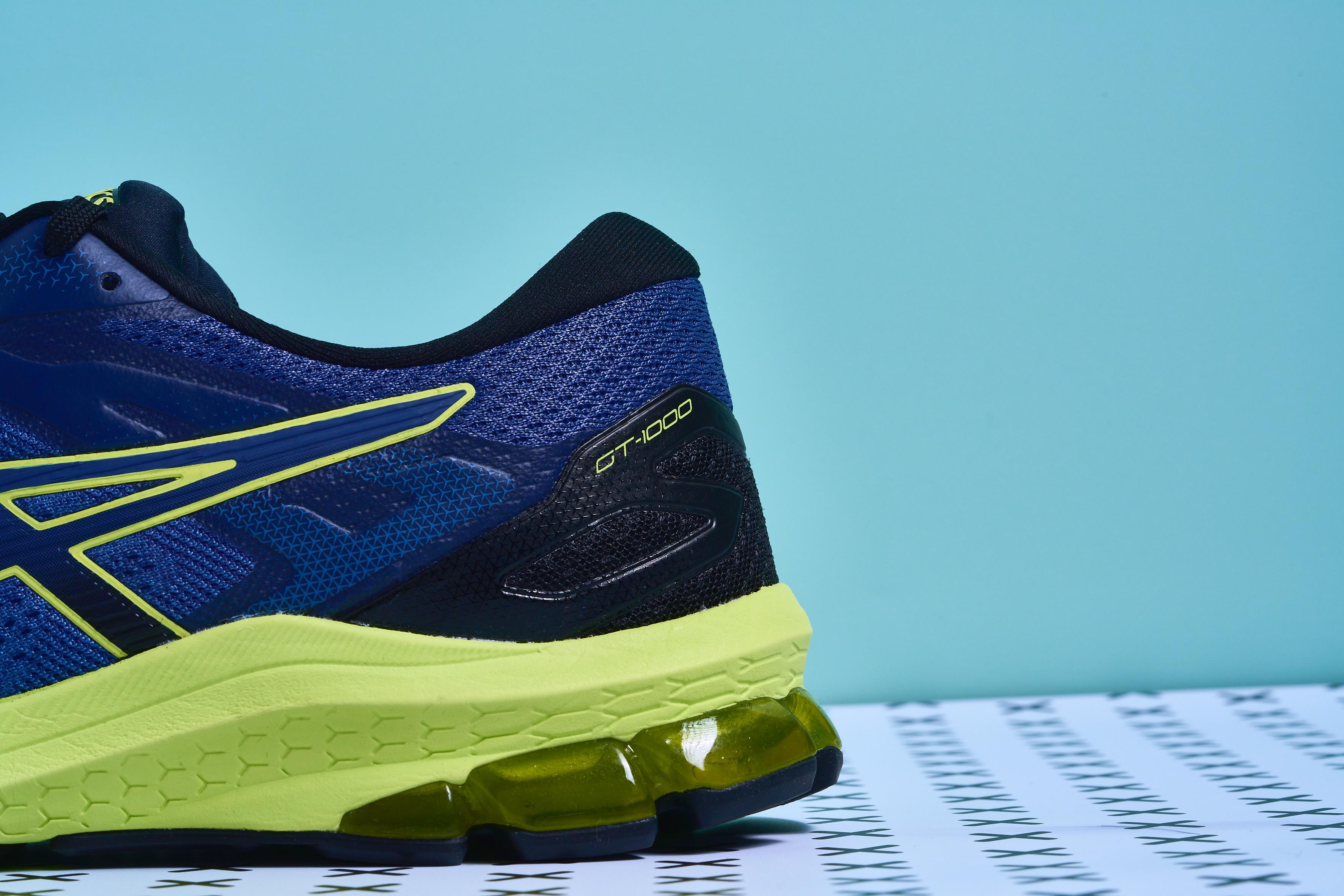
It’s really great to see ASICS taking on board comments like this to improve the overall feel of the shoe.
The ASICS outsole AHA(R) moment is even more AHAR...IER?
My favourite part of the GT 1000 series is the grip and durability of its outsole and the GT 1000 10 continues to build on that. Using AHAR (ASICS High Abrasion Rubber) and AHARPLUS, ASICS deliver a really long lasting and grippy outsole.
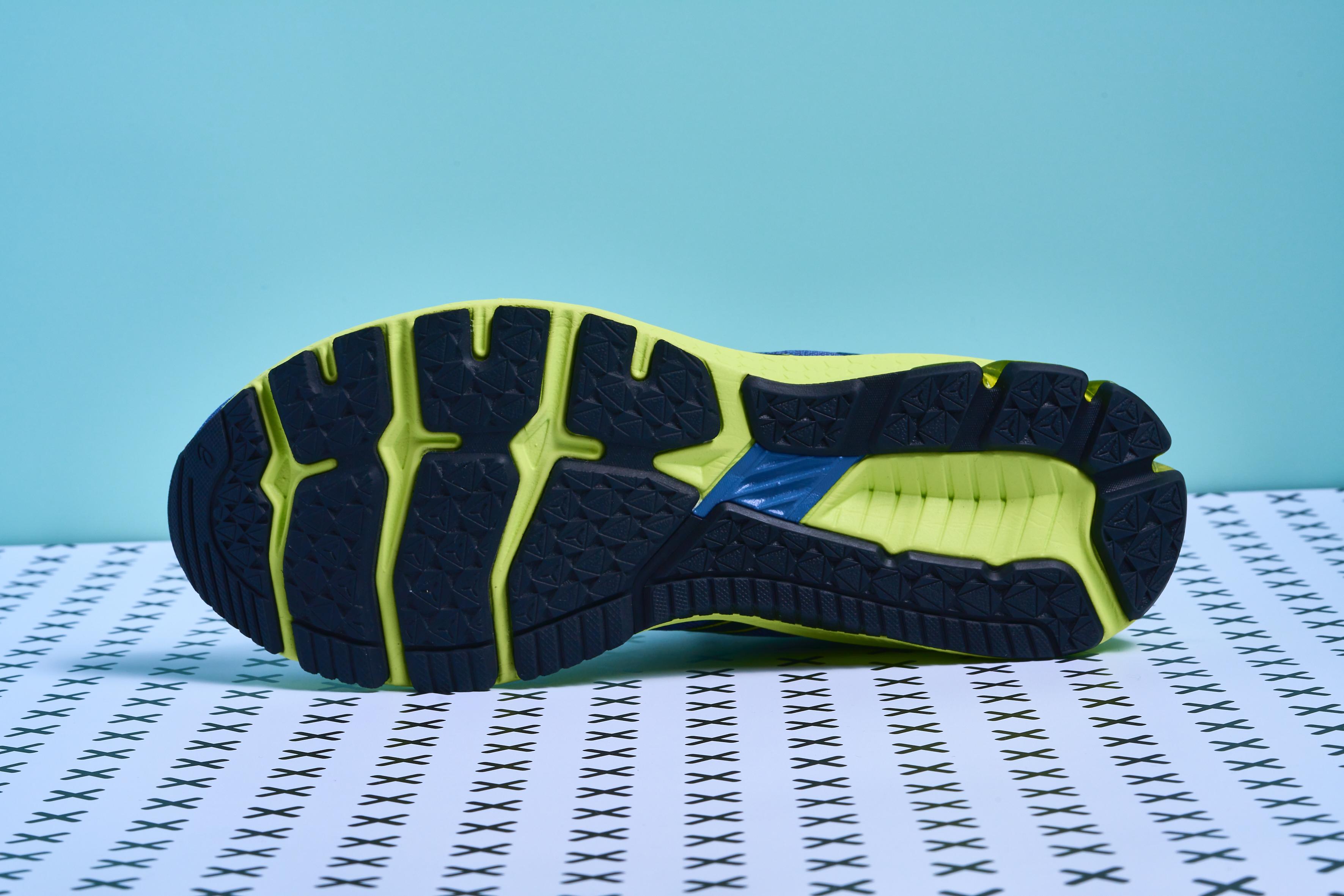
Through my wetter runs I found very little need to worry about my foot slipping on the tarmac. If anything I’m worried I’ve gotten over confident for when I put back on my normal road shoes.
The GT 1000 10 come with 6.6mm of AHARPLUS at the heel which is well above average and is able to keep it up for 100s of miles.
The GT 1000 10 is here to keep you in control
One of the leading causes of running related injuries is wearing the wrong shoes. While solutions range from personalised insoles and highly specific shoes, it can often seem like quite a high investment to make sure you keep running.
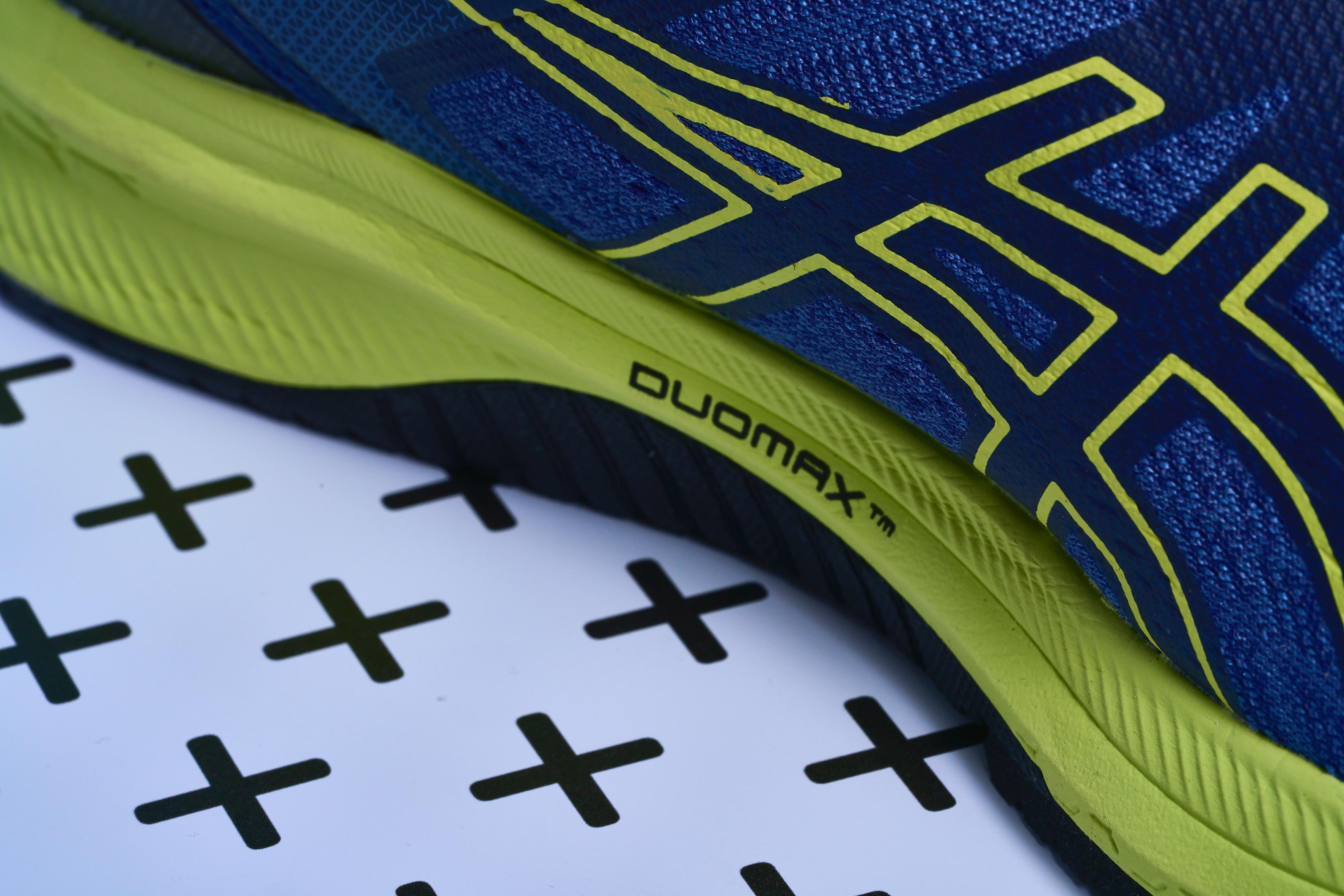
This is where the GT 1000 10 becomes one of my favourite everyday runners. With a pricetag that’s relatively easy on the bank, ASICS offer their DUOMAX midsole, which is a dual-density foam in the medial side of the midsole to help control over-pronation throughout the foot strike. The shoe has a 7.8mm drop which is fairly neutral, which I felt allowed the DUOMAX to run free, unconstrained.
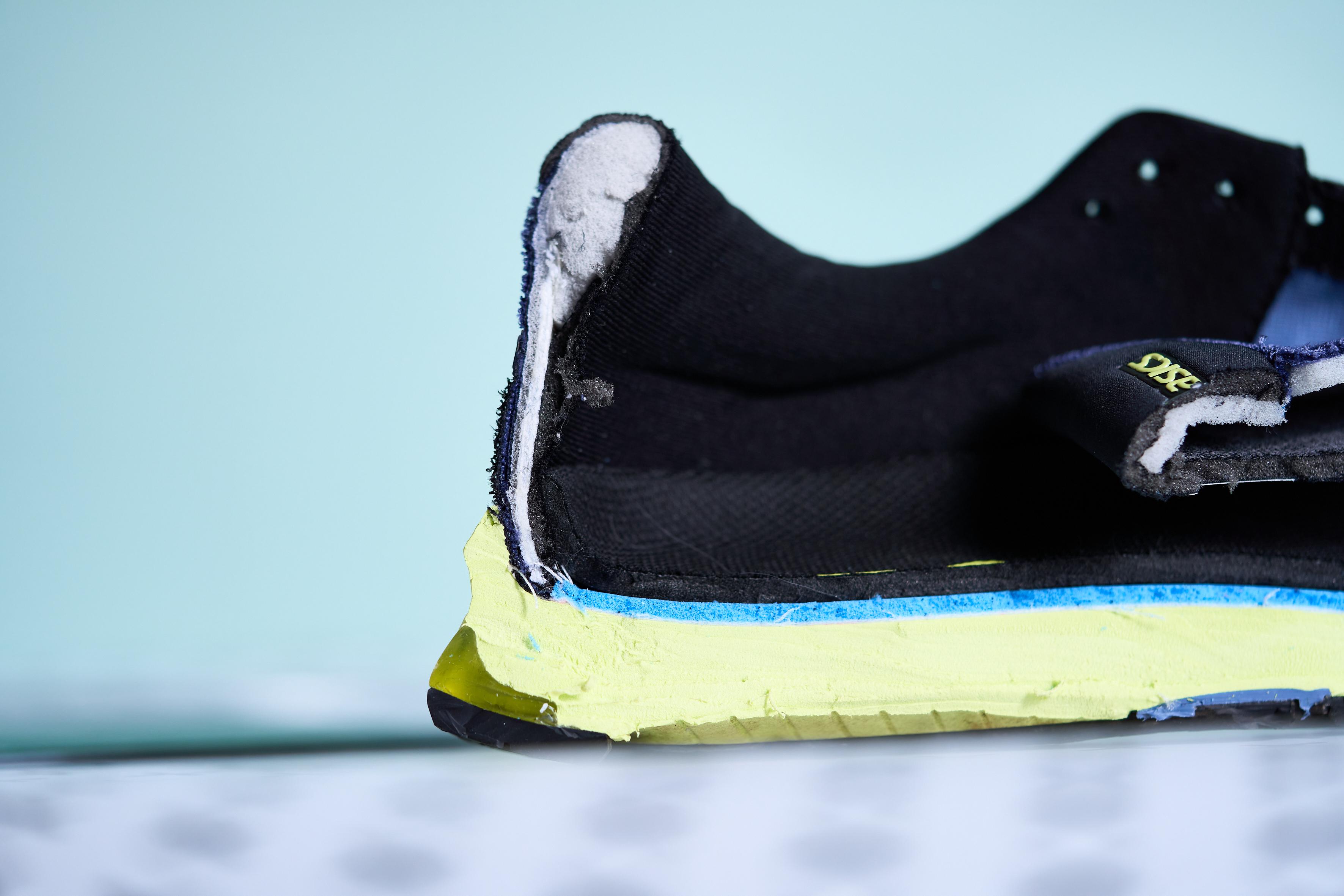
While running, I could feel a gentle but welcomed push on my inner foot to keep my stride as neutral as possible. It left me confident taking these on mid-length runs (10-20km).
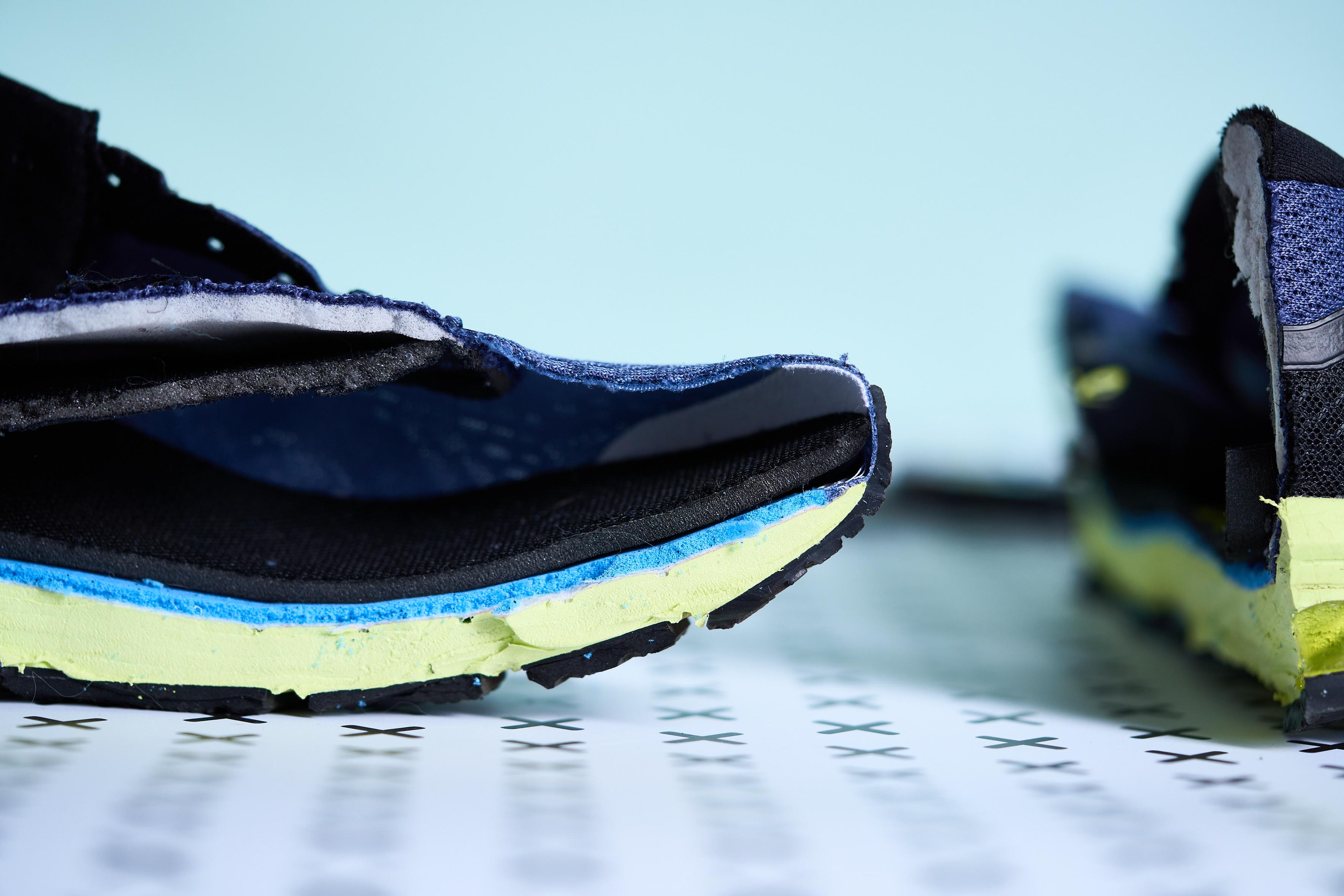
Any longer than that and I might have to start criticizing the minimalism of the Flytefoam in the midsole. If you’re looking go on longer runs and want the same control support, the GT 2000 10 offers the same technology with more cushioning.
The GT 1000 10 adds cushioning where it counts
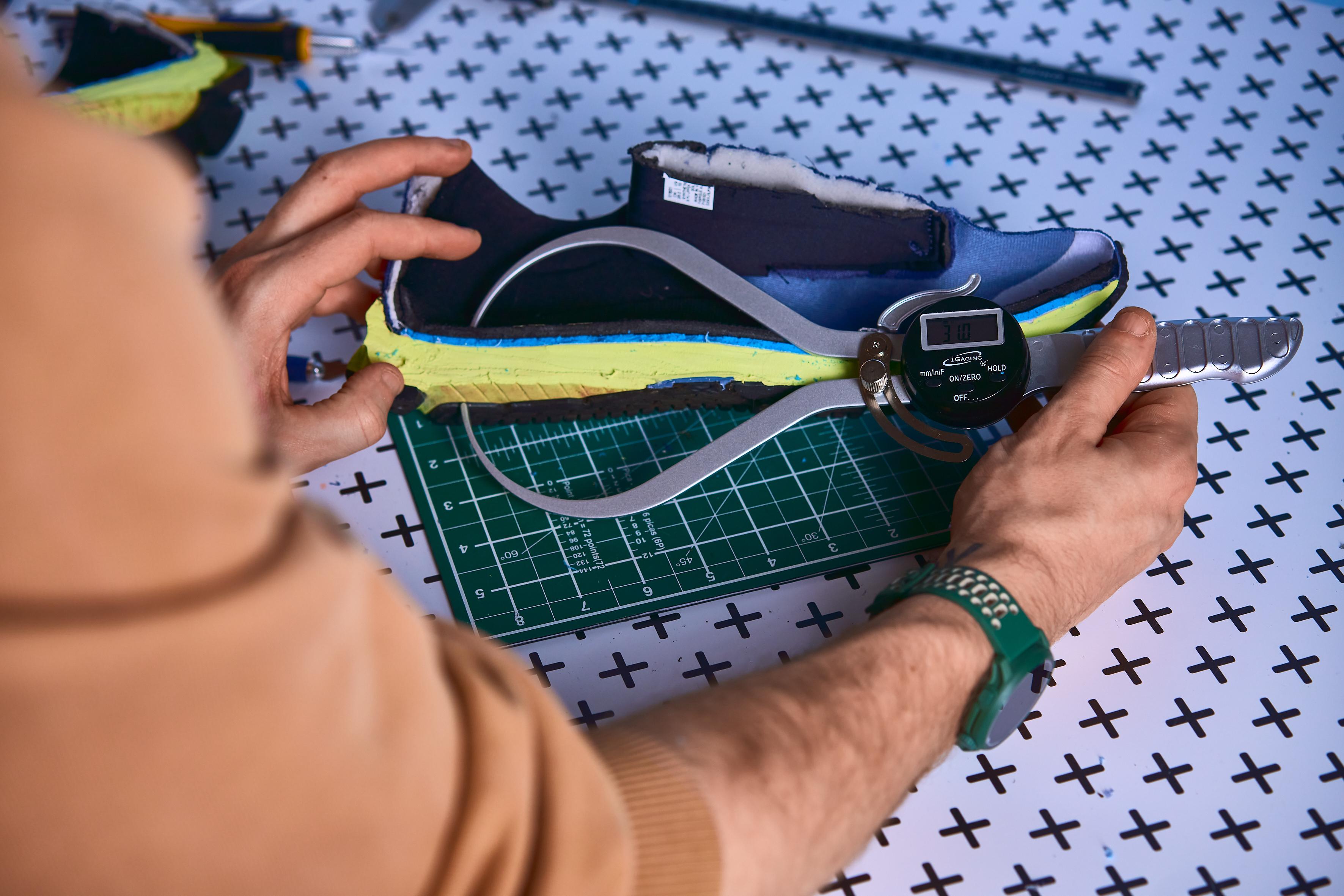
Even if the foam is a bit on the lighter side, the ASICS GT 1000 utilises the flagship Gel cushioning in the heel perfectly. I found this the be one of my favourite cushioning systems on the market, especially in this price range.
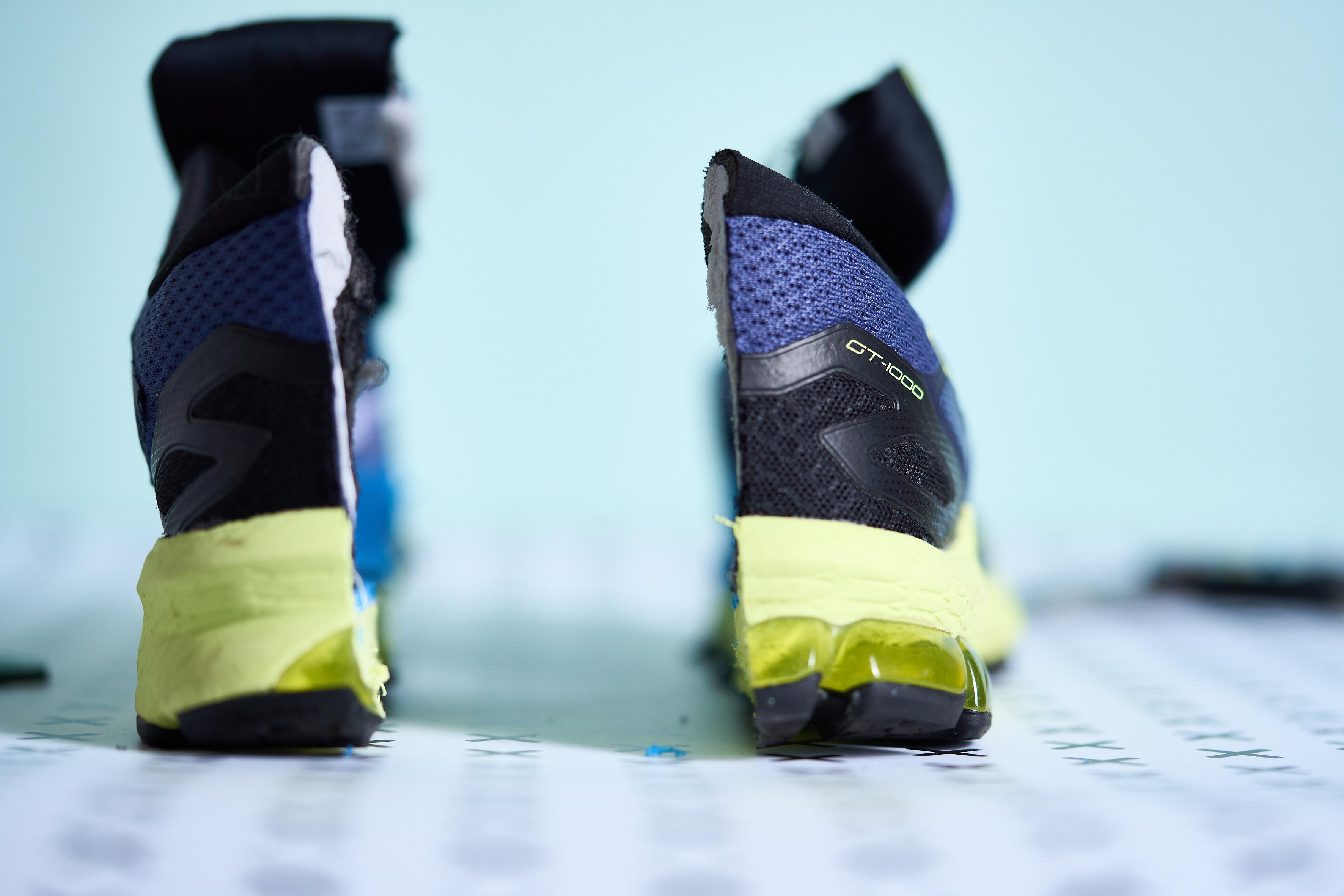
On the outer heel only, the gel helps dampen my foot strike and roll my foot back for the next stride.
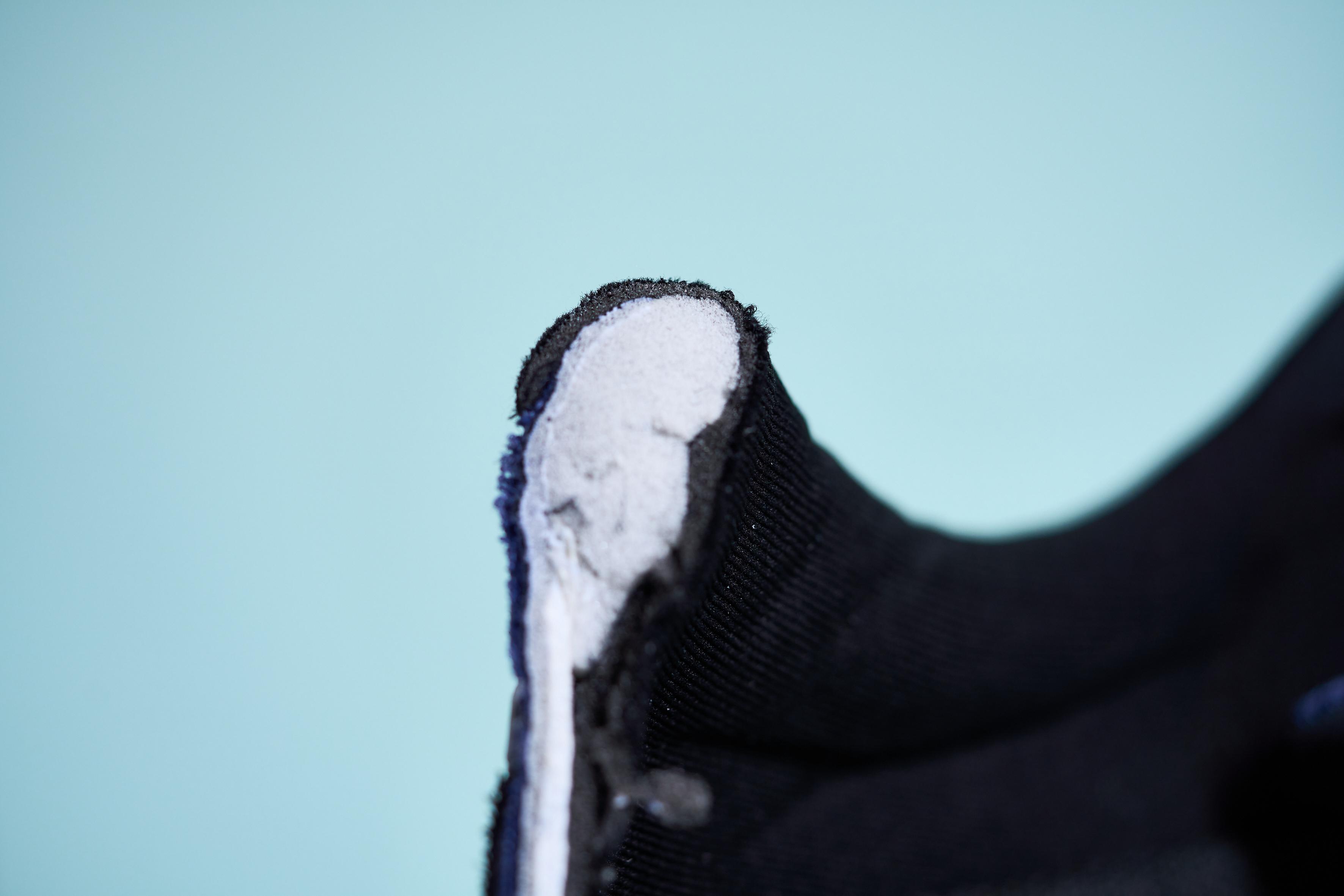
The midsole also has a decent amount of ankle support, while the foam in pliable enough to be ready right out of the box.
The shoe flexes nicely with the foot, it’s definitely not as springy as some faster shoes like the Nike Alphafly Next%, but provides more stability and control.
Makes a decent winter shoe, but might run warm
It took 31.7N to flex the shoe to 45° at room temperature and only 33.3N to do the same after the shoe had been in the freezer for 20 minutes. This is quite a low change which is great if, like me, you’re running in the upper Northern Hemisphere.
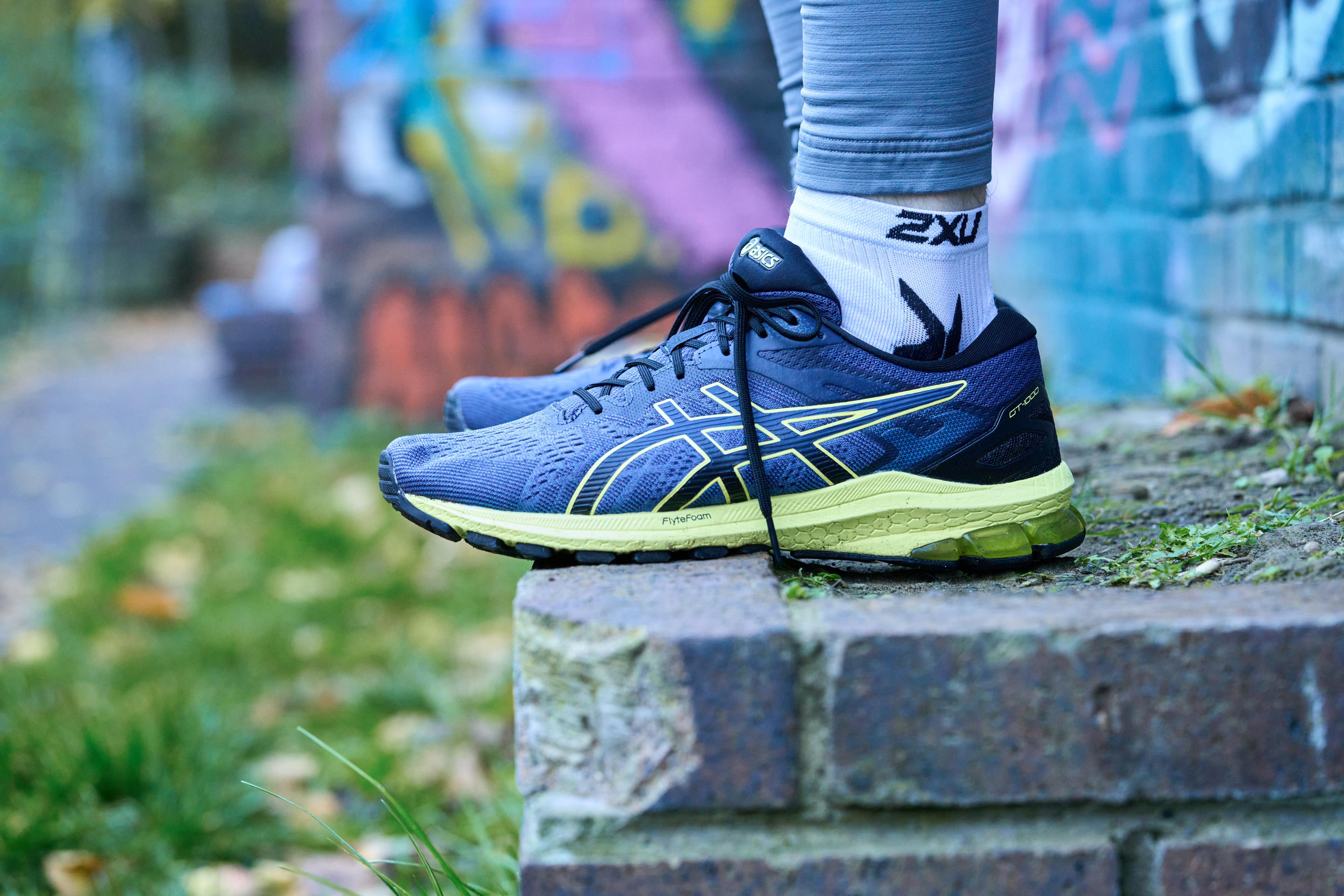
Even better for my winter runs, the upper has tons of padding. There’s no change from the previous iteration as to how much tongue and ankle padding there is. This makes the shoe seem perfect when in sub 10°C conditions, but I can imagine it being a bit too much for warmer climates.
Conclusion
The GT 1000 series has been a long standing go-to shoe for casual, everyday runners. There’s definitely some quirks missing that are present in higher end models, but for a pair of stability shoes to lace up and head out in any condition, it’s hard to find a better suited pair.
